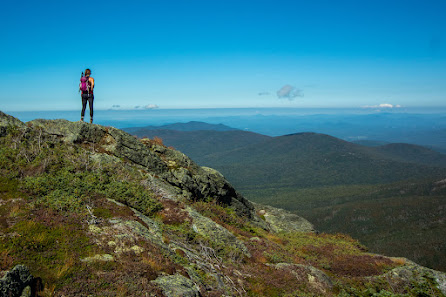New Hampshire
From the 50 State Visitor Guide:
NH R.S.A. 2019 §651-B:1 through 651-B:12; Admin. Code Saf-C 5501.01 through 5506.7
Registration Triggers and Deadlines:
Five business days for initial registration and updates. §§651-B:4, B:5
Visitors: “Residence” defined as more than a total of five aggregate days during a one-month period (but not a calendar month per NH SOR office). §651-B:1(XIII).
Residency/Presence and Other Restrictions:
None.
Duration & updates:
Tier 1 – 10 yrs. Tiers 2&3 – life. Petition to remove – T1 – 5 yrs. T2 – 15 yrs. Updates: T1&2 – 6 months. T3 –3 months.
Most recent visit: July 2022
New Hampshire’s SOR law is unusual in that while there are a few states cruel enough to limit registered visitors to only a few days per calendar year (Florida, Illinois and Alabama come to mind), this is one of the few states that has an aggregate standard per month – specifically five aggregate days. Also, although the state law is silent on whether the words “one month period” means a calendar month, the nice lady at the New Hampshire SOR office was NOT silent. She said that “month” means any 30 day period whether a calendar month or not. Thanks for nothing.
Beyond that small number of days, however, New Hampshire is pretty easy to get along with, since at a state level at least it has no residency, presence or other restrictions. Local restrictions may apply and as with so many other states you must assume that any partial day will count against the five day total. So to that degree you can travel the state without worry.
I had passed briefly through the southeast corner of Granite State a couple of times on my way between Massachusetts and Maine, but July 2022 was the first time I have spent enough time (four partial days total) to justify writing a blog entry about it. Really, the only reason I was there the first time I entered the state was because I had been unable to reserve a Maine campsite for a Saturday night during peak tourist season.
I entered far northern New Hampshire from Maine and drove twisting scenic country roads south until I came to the tacky tourist mecca of North Conway. After inching my way through all that traffic I turned west into White Mountain National Forest on SR 112 where there are several campgrounds, fingers crossed hoping to find one – just one – little empty campsite. Going right past the “Campground Full” signs, I drove slowly around each campground loop until suddenly *gasp!* there it was, apparently empty and available. I pulled into the campsite parking space, approached the “campground host” to ask about it and he said “Yup, those people just left a few minutes ago.” Tadahhh!
The next morning I was up and gone, headed for my brother’s house in Rhode Island. But that wasn’t my last time in New Hampshire on this trip to New England. A few days later I was back after having visited Boston with my family, tagging along with them on their way to Maine. This time it was a weeknight and I had a reserved state park campsite. The next morning I split up with my family again. They headed north and I zoomed southwest to New Jersey.
Now as you can see, on this trip I spent a total of four days in New Hampshire within a single 30 day period. All of those days were partial days but they all still counted toward my allowable total. Therefore I wore out my welcome in the Granite State for at least 30 days, and as of this writing those 30 days have not yet elapsed. Oh well.


